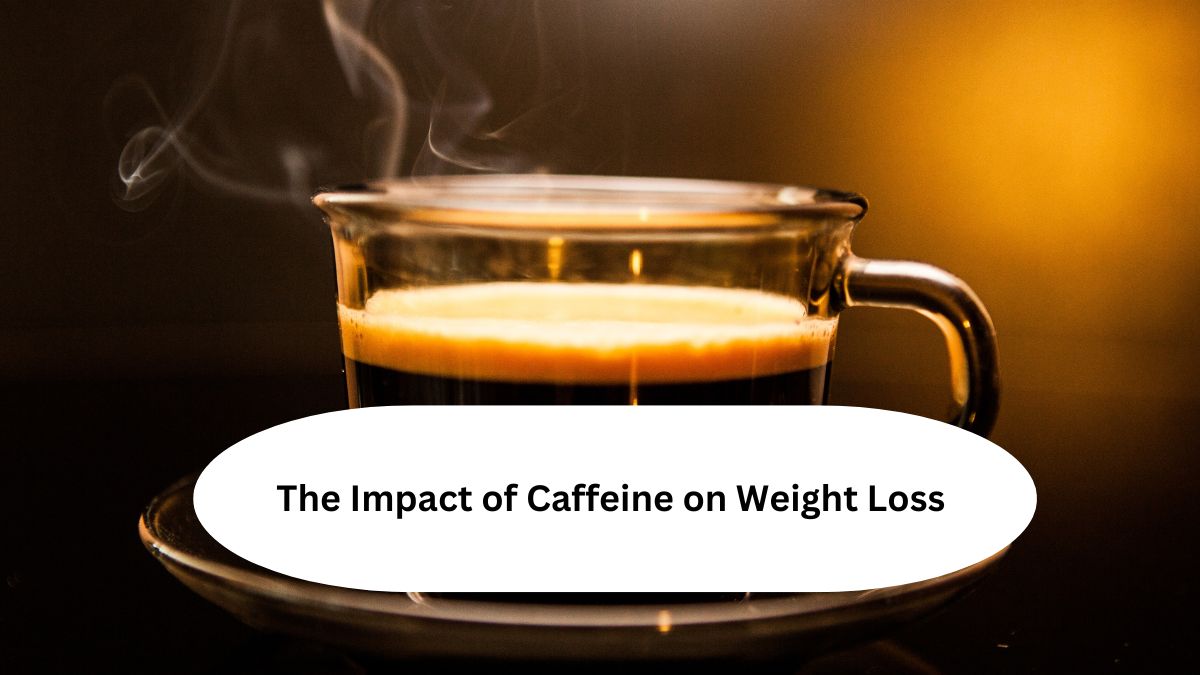Introduction

In the relentless pursuit of shedding those extra pounds, many turn to a variety of methods to boost their weight loss journey. From rigorous workouts to strict diets, the options are endless. However, one stimulant that often finds itself in the spotlight for its potential impact on weight loss is caffeine. Whether you kickstart your day with a steaming cup of coffee or indulge in the occasional energy drink, the caffeine content might just be your secret weapon in the battle against the bulge.
The Buzz Behind Caffeine

Let’s dive into the basics. Caffeine is a natural stimulant found in coffee beans, tea leaves, and various other plants. Its stimulating effects on the central nervous system are well-known, providing a quick boost in alertness and energy levels. But how does this translate to weight loss?
Metabolic Perks of Caffeine

One of the key ways caffeine influences weight loss is by revving up your metabolism. Studies have suggested that caffeine can increase metabolic rate, leading to a higher calorie burn. It achieves this by stimulating thermogenesis, the process your body uses to generate heat and energy from digesting food.
Fat-Burning Furnace

Caffeine doesn’t just stop at increasing metabolism; it also encourages the body to tap into its fat reserves. The stimulant prompts the release of adrenaline, which signals fat cells to break down and release fatty acids into the bloodstream, where they can be used as a source of energy.
Caffeine and Physical Performance

For those hitting the gym in pursuit of weight loss, caffeine might be a valuable ally. The stimulant has been shown to enhance physical performance by improving endurance, strength, and overall exercise output. This means you can push yourself harder during workouts, ultimately contributing to more effective weight loss.
Appetite Suppression

Ever notice that your cup of coffee seems to stave off hunger temporarily? Caffeine has appetite-suppressing properties, making it an effective tool for those aiming to control their calorie intake. By reducing feelings of hunger, you may find it easier to stick to a calorie deficit, a cornerstone of successful weight loss.
The Timing Dilemma

While caffeine can be a valuable asset in your weight loss arsenal, the timing of consumption matters. Consuming caffeine too close to bedtime may interfere with your sleep, which in turn can negatively impact weight loss efforts. It’s crucial to strike a balance and consume caffeine at times that align with your lifestyle and daily routines.
Personalizing Your Caffeine Intake

It’s essential to recognize that individuals respond differently to caffeine. Some may experience heightened sensitivity, leading to jitteriness and restlessness, while others may build tolerance over time. Understanding your body’s response is key to optimizing caffeine intake for weight loss without unwanted side effects.
The Sweet Trap: Caffeine in Sugary Drinks

While black coffee and unsweetened tea are low-calorie options, the story changes when caffeine is consumed in sugary drinks. Sodas and energy drinks, laden with added sugars, can offset the potential weight loss benefits of caffeine. Opt for healthier alternatives to maximize the positive effects without the drawbacks.
The Caffeine Paradox

Despite the potential benefits, it’s crucial to approach caffeine as part of a holistic weight loss strategy. Relying solely on caffeine without addressing dietary choices and physical activity may yield limited results. It’s about balance and incorporating caffeine into a broader plan for sustainable and effective weight loss.
Celebrating Progress, Not Perfection

Weight loss journeys are unique, and what works for one person may not work for another. Embrace the progress you make, celebrate the small victories, and recognize that a healthy lifestyle encompasses more than just caffeine intake. It’s about finding a sustainable balance that fits your individual needs and preferences.
Conclusion
In conclusion, the impact of caffeine on weight loss is a multifaceted and intriguing topic. From boosting metabolism and aiding fat breakdown to enhancing physical performance and suppressing appetite, caffeine can be a valuable tool in your weight loss journey. However, it’s essential to approach caffeine consumption with mindfulness, recognizing individual differences and considering overall health and wellness.
FAQs:
- Can I consume caffeine in the evening for weight loss?
- While caffeine can boost metabolism, consuming it close to bedtime may disrupt sleep, which is crucial for weight loss. It’s advisable to limit caffeine intake in the evening.
- What’s the recommended daily caffeine intake for weight loss?
- The optimal amount varies among individuals, but moderate caffeine consumption, around 200-400 mg per day, is generally considered safe and effective for weight loss.
- Are there any risks associated with excessive caffeine intake?
- Yes, excessive caffeine consumption can lead to negative effects such as insomnia, increased heart rate, and anxiety. It’s important to set reasonable limits based on individual tolerance.
- Do caffeine-infused weight loss supplements work?
- The efficacy of such supplements is questionable, and they may pose risks due to high caffeine levels or other additives. It’s advisable to prioritize natural sources of caffeine.
- Can caffeine be consumed during intermittent fasting for weight loss?
- Yes, moderate caffeine intake during fasting periods is generally acceptable and may even enhance the fat-burning benefits of fasting. However, stay mindful of overall hydration and listen to your body’s signals.






